While participating in a homestay program in France, I started to notice quite a few small cultural differences between my American culture and my host family’s French culture. Whether you’re going to France for the first time, or the tenth time, you’ll probably experience culture shock due to the slight nuances of French life.
I was surprised that the small differences I noticed were some of the quirkiest and most distinct. While culture shock affects everyone differently, by being open to your experiences abroad you’ll learn to love these differences!
10 things I learned about French culture during my homestay:
French People are Like Coconuts: An old French man at a rural train station once told me that “The French are like coconuts; it takes a long time to break through their outside and get to know them, but once you do, they are sweet on the inside.” I found this to be true throughout my experience!
Consciousness of Resources: In France, I learned how to shower like the French. Despite the body odor stereotype, many people shower every day. But most people take shorter showers or use less water by turning off the water while shampooing or soaping up. They also are more conscious about closing doors, using less heat and turning off lights to save energy!
Politics are important: In America, we often get annoyed or bored with political discussions causing us to stop paying attention. Sometimes one’s political views are even considered a private matter. However, the eyes of the rest of the world are constantly on U.S. politics, and French people are very aware of geo-political events. Consider brushing up not only on French/Global politics, but the politics of your own country as well!
Debate is valued: While conversing with the French, don’t be afraid to share your views. They may be different, and you may get frustrated, but the French love a good debate! It is even considered more polite to discuss politics or the weather with someone you don’t know than what they do for a living.
Protests are common: I studied in France during political unrest over police violence and there were many peaceful protests around the country. Freedom of speech is a huge part of everyday life. Also, the French unions love to go on strike frequently, and at any time. Because of this, you will learn to be flexible with transportation schedules because they aren’t always reliable!
Customer service: The French don’t have the same attitude about the necessity of good customer service as we do in the U.S. I struggled with this a lot when I was trying to figure out a problem with a cell phone that I paid for in France. I’m not sure why they aren’t friendlier to people giving them business, but it’s something you just have to accept! This especially applies at restaurants because gratuity is already included in food costs.
Grocery Shopping: Not everything will be available in every grocery store as it is in the U.S, and you may find a better variety of food at the outdoor farmer’s market than the supermarket. It took me weeks to find cilantro! Especially in smaller towns, the food is more natural and local, so it may not be perfect looking, but is definitely healthier than mass shipments of genetically modified produce that we often see in the States. Fresh is best!
Breakfast: You are much more likely to have an omlette for dinner than before noon. The English word “breakfast” has an almost opposite meaning to the French word “petit dejeuner.” As opposed to breaking the fast of the long night of sleep, “petit dejeuner” can be translated to mean “small lunch”. French breakfasts are always small to save room for lunch. Often a bowl (yes, bowl) of coffee or hot chocolate with bread and butter is considered to be a standard breakfast.
Lunch: Lunch is the biggest meal of the day by far. When I had lunch at the university I always got a giant meal, often a meat or pasta dish with at least two side dishes. Then you’d get a choice of cheese, fruit, or yogurt, a dessert, and ALWAYS bread.
Dinner: Because of the enormity of lunch, dinner is smaller and later than it is in the U.S. Many people have a snack around 4 in the afternoon to hold off until dinner. Dinner is often as late as 8 or 9 o’clock! Even though it’s smaller, it is an important time for families to come together. My whole host family ate dinner together almost every night and usually stayed at the table for a much longer time than my family in the U.S. would.
While food is a big part of any culture, it is of utmost importance and seriousness in the French society (notice it takes four out of 10 places on this list!). I still haven’t figured out how the French eat a light dinner AND breakfast and wait until lunch every day for a big meal….but c’est la vie!
Don’t forget to enjoy some croissants and snails!
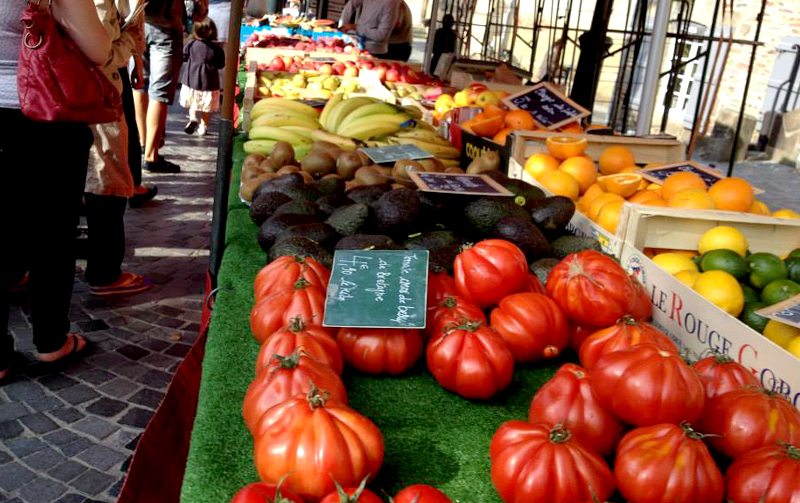
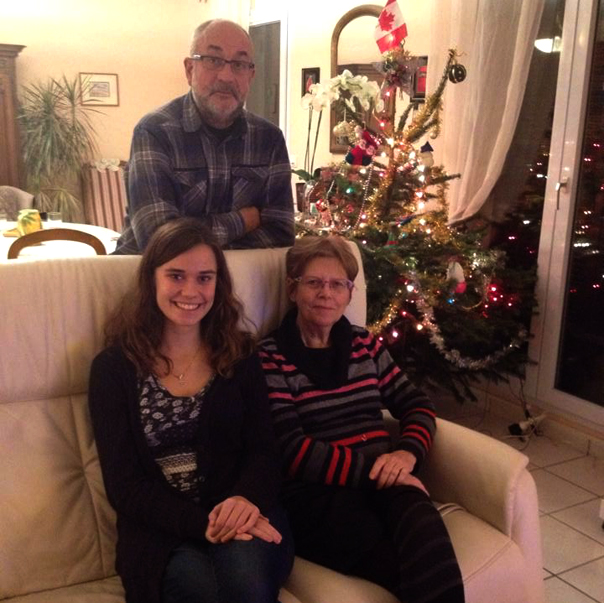
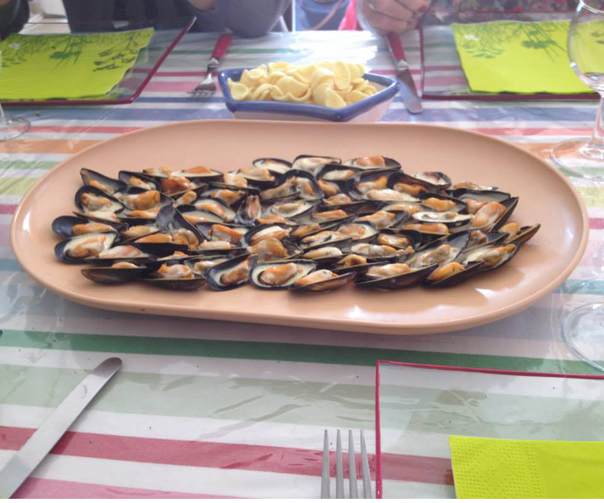
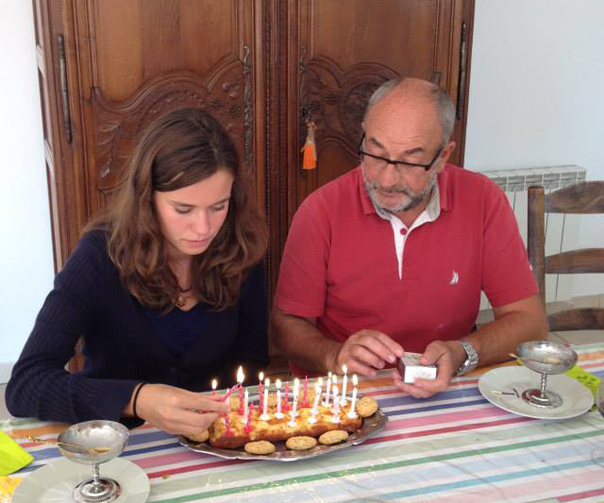
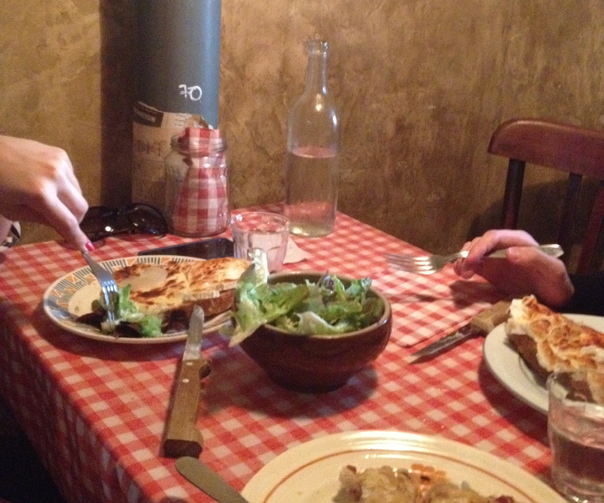
The reason for the customer services mentality is that it is the direct opposite of Anglophone culture. It’s the customer that wants something So the customer should be polite, patient and accepting of what the server can do. Not the other way around.
Hi, so this is going to sound kind of crazy, but I just wanted to share that when I came across this post, I noticed that your host family is the same one with whom I stayed during my semester abroad. What a coincidence! I m currently living and teaching English in France and have started to make plans to visit them.
What an amazing coincidence!
Based on the comment I now know why Americans who visit France complain so much about the rudeness. Here, the customers are supposed to come first, not the owner and waiters.
French culture is very interesting to look at. It is so different from American culture but it is so much more beautiful.
I never knew this stuff and it is very cool to learn about the french culture
hi! I enjoyed reading this article! thanks for sharing. it was also funny to read it as a french person who lived in the US for a few years 🙂
however, I just wanted to say, “déjeuner” means the same thing as breakfast from an etymological standpoint. “jeûner” means “to fast” so “déjeuner” literally means “to unfast”. absolutely wanted to clarify this as I am a total etymology lover ! If you happen to love it as well, may I recommend Mark Forsyth’s book “the Etymologicon”. it’s yummy!
have a wonderful day!
Hi great cultural points. Something interesting to add:
in French:
–jeûne = fast (noun)
–jeûner = to fast (ver)
–dejeûner = lunch…. but if you break down the components…. it literally means the “de-fast” (or un-fast) i.e. break the fast
–and so the petit dejeûner is the “little break of the fast” (from fasting all night)
Spanish is the same:
–ayuno = fast
–desayuno = breakfast (or literally… “de-fast”)
this was so helpful!!!!!
I am 9 years old and its really cool to learn about the France culture!:)